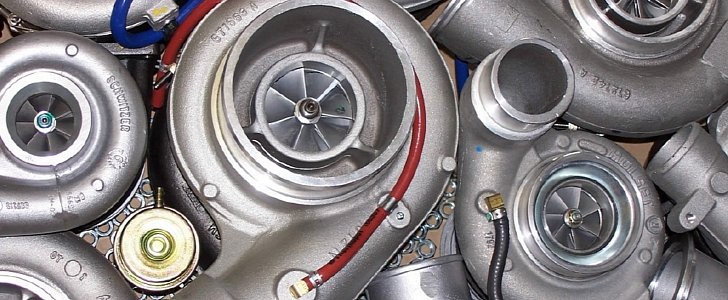Just How Engines For Africa Delivers Worth and Efficiency
Just How Engines For Africa Delivers Worth and Efficiency
Blog Article
A Total Overview to Picking the Right Engine for Your Task
Selecting the suitable engine for your project is a critical choice that can significantly influence its general success. It is crucial to meticulously specify your task needs, assess performance demands, and think about user-friendliness along with various other crucial factors. Additionally, comprehending the area support available and looking at price ramifications can further fine-tune your selection. Each of these elements plays a critical duty in guaranteeing that your picked engine not only fulfills instant purposes but likewise straightens with long-term goals. As we discover these factors to consider, you might discover that the subtleties of each aspect disclose more than at first expected.
Define Your Project Needs
Defining your project requires is an important action in choosing the appropriate engine for successful implementation. A comprehensive understanding of your job's purposes will lead you in determining the capacities and functions called for from an engine. Begin by describing the scope of your project, consisting of the wanted functionality, target market, and the particular results you aim to attain.
Following, take into consideration the technological demands that line up with your project objectives. This includes assessing the compatibility of the engine with existing systems, along with the shows languages and structures that will be used. In addition, assess the degree of scalability called for to fit future growth or modifications in demand.
Budget restraints likewise play a vital duty in defining your job requires. Establish a clear financial framework to guide your decision-making procedure, guaranteeing that the engine picked fits within your budget plan while offering the necessary performance.
Evaluate Performance Demands

Next, think about the scalability of the engine. Evaluate whether it can deal with boosted work as your task expands. Engines that sustain horizontal scaling are typically preferable for larger applications. Additionally, evaluate the engine's efficiency under various problems, such as peak use circumstances, to ensure it fulfills your reliability requirements.
Think About Ease of Usage
While technical requirements are important, the simplicity of usage of an engine can significantly affect the development process and general task success. An instinctive interface, clear documents, and streamlined workflows can drastically lower the learning curve for designers, allowing them to concentrate on imagination and problem-solving instead of grappling with complex devices.
When reviewing an engine's convenience of use, consider the onboarding experience. A well-structured introduction, complete with tutorials and sample jobs, can help with a smoother transition for new users. Furthermore, the quality and comprehensiveness of the engine's documentation play an essential role; thorough guides and API referrals can empower programmers to troubleshoot and carry out attributes successfully.
An engine that permits for easy alterations can be a lot more easy to use, as designers can customize it to fit their certain needs without comprehensive hassle. Inevitably, you can look here picking an engine that focuses on convenience of usage can lead to a more pleasurable and effective advancement experience.
Assess Neighborhood and Support
The strength of an engine's community and assistance network can substantially affect a developer's experience and success. A vibrant area usually suggests a wealth of shared knowledge, resources, and troubleshooting support that can enhance your job's advancement procedure. When analyzing an engine, take into consideration the dimension and task degree of its area. Bigger areas typically supply much more forums, tutorials, and third-party plugins, enabling programmers to locate solutions a lot more effectively.
In addition, review the accessibility of official assistance networks. Trusted documents, receptive consumer assistance, and normal updates are crucial for dealing with technological issues and maintaining your job on course. Engines For Africa. Energetic areas also promote cooperation, giving chances for networking and comments, which can be invaluable, specifically for little groups or independent programmers
Furthermore, examine the existence of community-run events, such as meetups or hackathons. These events can improve your understanding of the engine while linking you with experienced users and possible collaborators. In summary, a durable area and support group not just simplify growth but additionally develop an atmosphere for learning and development, eventually enhancing the likelihood of your job's success.
Compare Expense and Licensing Alternatives
Budget plan factors to consider play a critical role in choosing the appropriate engine for your job, as the expense and licensing options can considerably impact both short-term costs and lasting viability. Engines For Africa. Various engines supply differing prices frameworks, which can consist of one-time acquisition charges, subscription versions, or revenue-sharing contracts based upon your job's earnings

Certifying alternatives likewise vary substantially. Some engines are open-source, supplying adaptability and community-driven support, while others might call for exclusive licenses that limit use and distribution. Comprehending the ramifications of each licensing version is essential, as it affects ownership rights, future scalability, and potential lawful responsibilities.
Final Thought
Finally, selecting the proper engine visit this web-site for a project requires a thorough examination of defined task demands, efficiency needs, simplicity of use, neighborhood support, and expense factors to consider. By systematically resolving these important aspects, decision-makers can make certain positioning with both current and future job needs. A knowledgeable choice eventually enhances the probability of task success, allowing efficient source allocation and making investigate this site the most of prospective end results within the specified monetary constraints.
Selecting the proper engine for your job is an important choice that can considerably impact its overall success.Defining your project requires is a crucial step in choosing the suitable engine for successful implementation. A detailed understanding of your task's objectives will certainly direct you in recognizing the functions and abilities called for from an engine.Once you have a clear understanding of your project needs, the following action is to assess the efficiency demands of the engine.In conclusion, choosing the suitable engine for a task necessitates a thorough assessment of specified job requirements, efficiency requirements, ease of usage, area support, and price factors to consider.
Report this page